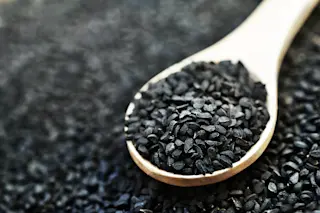The black cumin or Nigella sativa plant has been used for more than 2,000 years in traditional remedies throughout Asia, Africa and Europe. Also known as “Love in a Mist” and the “Seed of Blessing,” the seeds were even found in King Tut’s tomb and praised by the Prophet Mohammed as a remedy for “every illness except death.” Black cumin seeds and their extracted oil have long been taken orally and applied to skin to maintain overall health and combat a wide range of ailments — including those affecting the digestive tract and the cardiovascular, immune and respiratory systems.
Over the past few decades, researchers have taken a closer look at the popular remedy and recognized its potential as a clinical drug. Building on knowledge from traditional medicine systems like Ayurveda and Unani, both cell culture and animal studies (along with a smaller number of human ones) have delivered promising ...














